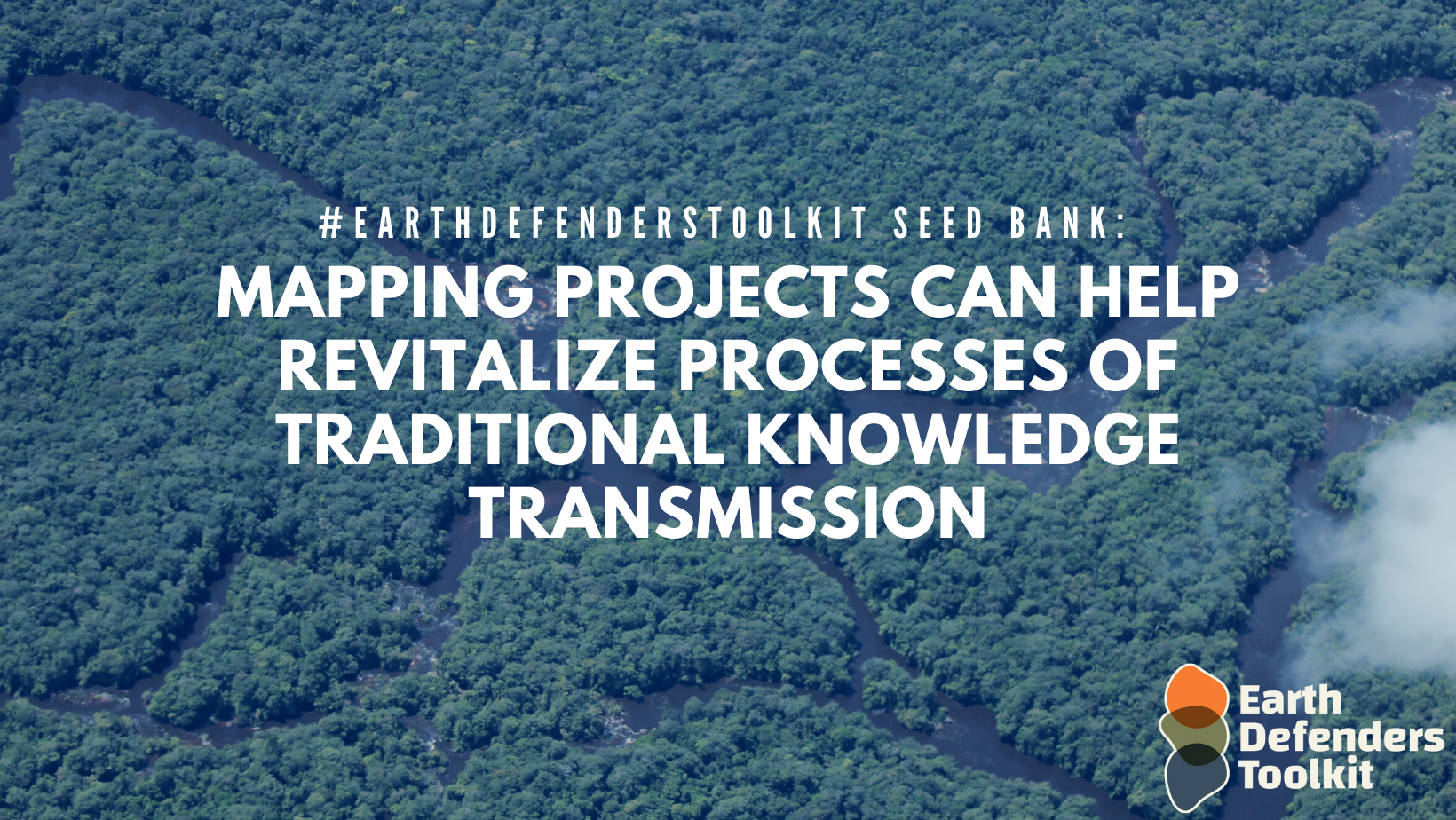Many earth defender communities across the globe harbor and express extensive traditional knowledge about their lands or waters. This knowledge may include traditional technologies of subsistence, ethnobotany and knowledge of medical plants, celestial navigation and astronomy, climate and ecological knowledge, or historical and spiritual knowledge. Traditional knowledge about the landscape is expressed in diverse formats including stories and songs, is frequently passed down orally from generation to generation, and often taught and learned by traveling with an elder from the community. For many communities, their culture is inextricably linked to the territory.
As colonization and acculturation increasingly affect traditional or local ways of life, that living memory and repository of knowledge is harder and harder to transfer from generation to generation. The allure of modernity, and the temptation of living a modern life in the city, may result in a local undervaluation of traditional knowledge. And as the means and technologies of subsistence, travel, and work shift to become more modernized, younger community members are no longer traveling through the territory in the same way as before, or even present in the village or homestead at all.
Because mapping projects invariably involve conversations about the land or water, they can help restart processes of knowledge transmission that have become stilted due to these influences of modernity or colonialism, and allow communities to record and archive local knowledge. When poised to think about the territory, and places within the territory, it frequently prompts community knowledge keepers to remember, and share. Elders can become motivated to share their traditional knowledge again through a mapping project, because their knowledge is actively solicited, and they see that the younger people are excited to learn about a technology that can help document the knowledge of the land. By contrast, mapping can also help younger community members realize the cultural, historical, or spiritual value of the land in ways they did not understand before. The process of mapping itself becomes a form of knowledge transmission.
Do you have additional thoughts on this? Please let us know what you think by filling out this form.
#EarthDefendersToolkit seed bank is a series of short blog posts where we share knowledge and learnings that have emerged from our research. Would you like to contribute? Please contact us!

